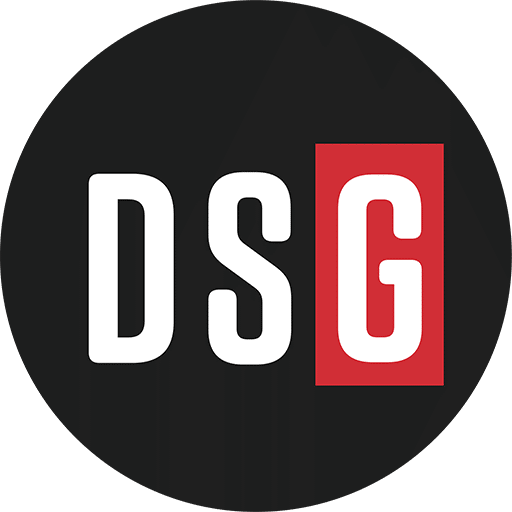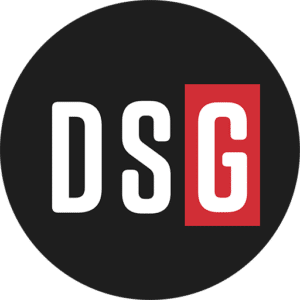Attracting and retaining talent is a pervasive trial for distributors. As new challenges and opportunities continue to emerge, however, how distributors lead their people is more important than ever.
Dirk Beveridge is the founder of UnleashWD and Executive Producer at We Supply America. His one-of-a-kind perspective on the future of wholesale distribution has guided his mission to advance the growth, relevance and transformation of the industry, helping distributors thrive.
Beveridge recently spoke with Ian Heller about his recent research, which unveiled the human resource strategies distributors need to develop an energized, inspired and customer-focused team that wins.
Ian Heller: You recently released a piece of research with a statistic that just blew me away. Can you share more on that?
Dirk Beveridge: I spent two summers crossing the country from sea to shining sea on the We Supply America tour, stopping at 59 different distributors to listen and learn. What I learned became the premise of our Future of Distribution reports and I cannot wait to get it in the hands of distributors.
Our research found that 82% of leaders throughout distribution believe that the ability to attract and retain talent is going to be the challenge for the next decade.
Heller: That’s incredible. It’s not the economy. It’s not interest rates. It’s not technology. It’s getting the right talent.
Beveridge: We need to raise this talent issue to the top of mind because it hasn’t been the focus for quite a while.
Heller: You’ve visited all these distributors, which you and I agree are among the best employers in America, and you’ve taken these lessons learned and created an HR Summit. Can you tell us about that?
Beveridge: I discovered during my time on the road that people and talent have become my calling. So, I created this HR Summit. I have an amazing lineup of CEOs who have a people-first take on culture. It’s going to be a game changer in how we lead.
With 82% of leaders saying that attracting and retaining talent is going to be the challenge for the next decade, we have to ask ourselves why. When you take a look at the external forces, internal forces and people forces, you see they are converging as a result of demographic shifts, labor availability and technology. The way we work needs to be redefined. I call it the Great Redefinition. How we lead going forward needs to change if we want to attract the talent we need for the next decade. We can’t accept the status quo; we have to think differently. We have to think deeper and harder and that’s my plan with the Future of Distribution report that is soon to be released.
Heller: What are some of the old talent strategies you believe are outdated?
Beveridge: I have this fundamental belief that independent family-owned, employee-owned distribution businesses are perfectly positioned to win the war on talent. However, there are three things holding us back.
One, we don’t believe it. We have convinced ourselves we can’t compete with the benefits that Amazon provides. We’ve convinced ourselves there is not upward mobility in our businesses. We’ve convinced ourselves that distribution isn’t sexy. Changing that starts with our mindset and believing that we have this amazing platform to help people live the lives they want to live. We also have to stop referring to our people as assets or resources. We have to rethink our terminology. We have to see the humanity in our people and see them as our greatest strength.
The second implication is that we must understand and embrace the changing needs of our employees. Our research shows that 87% of us believe that the needs of our employees have significantly changed. Yet, we still see people pushing back about hybrid work. Pushing back on talking about wellness and health-related issues. We see people pushing back about redesigning work to help employees take care of children who need to be dropped off at nine in the morning and picked up at three in the afternoon.
Third, we must reimagine our employee value proposition. An overwhelming 89% distribution leaders agree that our employee value proposition was built for yesterday. Going forward, in this age of the great redefinition, we have to rethink our employee value proposition.
Heller: As a side note, it’s not that distribution never lays people off, because it does happen but it’s a much steadier industry than others. Go ask all those tech people who just got laid off how sexy the tech sector is. How sexy is it that you lost your job?
Speaking of human resources, your research says only about 40% of distributors have somebody in HR reporting to executive management. Why do you think that is?
Beveridge: In distribution, we are a product business, we are a sales organization and we are a relationship organization. But nowhere in the equation was human resources. Over the last few decades, the demographics didn’t say we had to pay much attention to HR. The baby boomers were hired 30 years ago and have stuck around, but the game is changing so dramatically now.
Heller: What is the right leadership going forward?
Beveridge: That’s a big question. I’ll start by referring to the first Future of Distribution report from season one of We Supply America. There were two fundamental premises. Premise No. 1 was that the very nature of leadership is changing more rapidly than most of us realize. And the second premise is that humanity is going to play a larger role in leadership going forward. From my research, 93% of distributors agreed with this line of thought.
Leadership has gone through four phases. The first phase is controlling leadership and where many of us baby boomers were taught to lead by policing activities. This led into the second phase — managing the day-to-day of the business. The third phase added vision and culture to leadership practices. I think going forward, there is a fourth phase of leadership we need to discuss and that is the “noble calling of distribution.”
This fourth phase is about making an impact and helping others and ourselves find purpose. Every individual is a human being, not an asset to be managed, and they want to know their work is meaningful. And because of this, we must rethink our HR function.
Heller: When you say it’s important to make sure your employees are inspired, people sometimes view that as soft or just being nice and that you aren’t concerned with the bottom line. I don’t think that’s true at all. Do you?
Beveridge: Absolutely not. When I used to talk about this, I would find myself almost apologizing, saying “Hey, don’t get me wrong. I am a capitalist.”
I believe profit is absolutely noble. It’s the profit that allows you to create over 6 million jobs in distribution. It’s the profit that allows you to contribute to the local communities and invest in the future to hire more people.
However, I do believe that the conversation has always been about profit, sometimes at the expense of the people. When you look at today’s conversation about optimizing human capital development, it’s all about driving outcomes that are good for the company. There’s no conversation about driving outcomes for the person, for the human being.
I know from what I have seen from companies like Dakota Supply Group and Porter Pipe, those with a people-first culture and a desire to develop people to fulfill their potential are the ones that drive profit.
Heller: I completely agree with you. I’ve lived in cultures where the CEO or president is so focused on culture and doing the right things for the people and customers that they got out of the C-suite and made sales calls and visited with the troops all the time. People want to be part of that.
Beveridge: Absolutely. Are you familiar with B corporations? We are learning and talking a lot about them right now. Going forward, they are going to be a significant focus for us. A B corporation is like a C corporation but with a commitment to contributing to more than just the bottom line. It’s what many distributors are already doing, contributing to society, partners, investors, customers and their employees.
This model sums up everything we are talking about. Let’s roll up our sleeves and say, “What is the future going to ask of us?” Because the future is going to ask for more than the bottom line from that CEO.
There are strategies distributors need to take forward in our organizations and these will be included in our research. The first is mindset. We must believe that we have the ability to attract and retain quality talent. But only 38% believe they are positioned to win the talent challenge in front of us. We also need to elevate HR to the C-suite. Then, we must prioritize the employee experience to the same degree we prioritize the customer experience.
We’re serving the employees. So, we have to think, work and listen harder to understand that every employee has different needs. That’s a challenge and an opportunity. About 95% of distributors believe that as leaders, we must have the ability and mindset to develop our people not just to do their job but to help them thrive personally and professionally.
We have to be thinking about this differently. We need new paradigms; we need to break the rules. It’s incumbent upon us to rethink our HR strategies to help these individuals. We’re going to be talking about all this at the HR Summit.
Heller: You’re the most prolific person on LinkedIn that I’m connected to, and none of what you do is formulaic or cliche. I can tell when you’re just stopping at 11:30 p.m. while you’re working on a project and say, “I think I’ll take a picture and share this on LinkedIn,” or you’re by the side of the road in the We Supply America RV. I don’t know where you get the energy. Do you have any tips for the rest of us on how you remain as energized as you are?
Beveridge: When I am on my deathbed, I’m not going to remember the logos of the companies I’ve worked for or ones I stopped at on the We Supply America tour. I’m going to remember the people of distribution who are the backbone of this country. They are a force for good. My energy comes from my belief in people and the chance to meet and hug these people. I feel compelled to try to serve and help. We all have unique abilities and I try to bring those abilities to bear.


